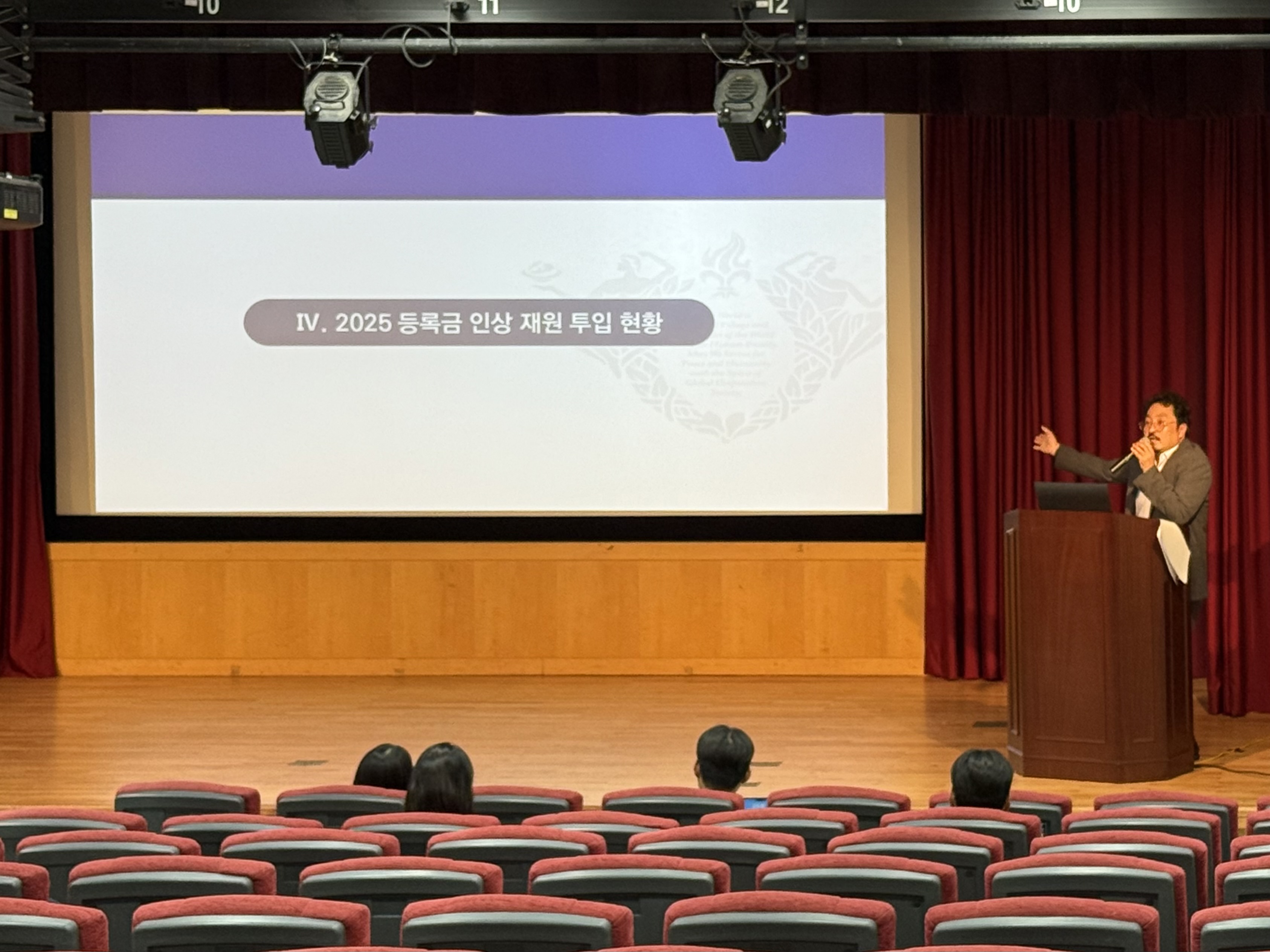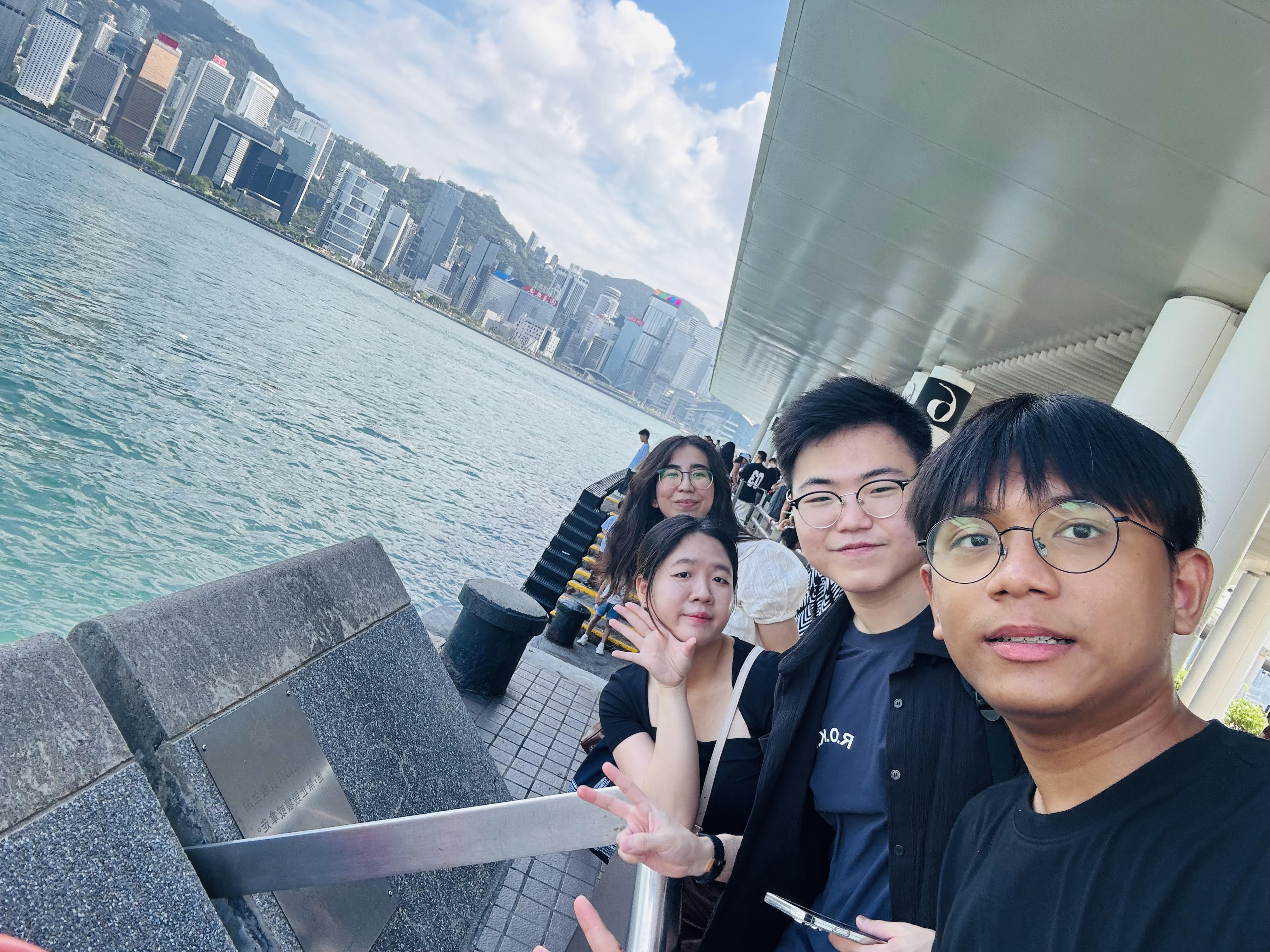[Campus] 2025 Global SDGs Team Challenge: Summer Abroad, Lessons for the World
September 16 marked the successful conclusion of the Kyung Hee University (KHU) International Student & Scholar Services (ISSS) team’s 2025 Global SDGs Team Challenge. Part of the University’s most recent initiatives to enhance academic cooperation between international and Korean students, the program brought together 30 participants of diverse nationalities to fly abroad and research sustainable development practices around the globe. Starting back on May 7 and working throughout the summer vacation, students researched diverse topics, creating a seven-page report as well as a 10-minute presentation. With solid results, proper funding, and positive reviews by those involved, the ISSS plans to organize more such programs in the coming months.
The 2025 Global SDGs
Team Challenge
This year’s Global SDGs Team Challenge, the
first pilot program of its kind, provided a unique opportunity for international
and Korean students to bond and travel abroad with substantial university funding.
According to the program description, there were four main objectives: increase
international student engagement, promote understanding among students of diverse
backgrounds, foster student interest and skills related to the United Nations
Sustainable Development Goals (SDGs), and strengthen global citizenship amongst
participants. “We wanted a program centered on enabling global students to
become proactive team leaders, while fostering interactions between international
and Korean students,” explained ISSS assistant manager Kim Eun-jung.
Recruitment began on May 7 via website
notices and the ISSS team’s official Instagram account (@khu_isss). The rules
for the initial application were straightforward: International students from
both the Seoul and Global campuses could create teams of up to four, including
at least one Korean student. Each team needed to elect one international
student as their team leader, whose country would then become the subject of
the team’s research. With the leader selected, the final step was to fill in a
project proposal and submit it by email.
The program drew more participants than expected:
30 out of 90 applicants were selected for a total of eight teams, double the number
the ISSS had planned for. This was a surprise; according to assistant manager
Kim, similar KHU programs usually had low application rates. “This really confirmed
for us that there is demand for these kinds of programs,” she said.
Scholarships were granted in three
categorical sums according to the distance of each team’s destination. Teams
headed for locations closer to Korea, such as Japan and China, received 1
million won for each member. Mid-range distances such as Hong Kong received 1.5
million won, and further-away regions such as Indonesia and
Singapore were granted the maximum amount of 1.7 million won.
The eight teams were then given the entire summer
vacation to travel abroad, conduct field research, and develop their final
reports. September 5 was the due date, and teams also participated in a final
10-minute presentation on September 16, sharing their results in front of
fellow program members and the ISSS team. All eight teams completed their tasks
without significant budget overruns.
A card news program announcement posted on the official ISSS Instagram account(@khu_isss) | Photo: Instagram(instagram.com) |
Wide-ranging Research
and Meaningful Lessons
After all teams had completed their research
and submitted project reports, the presentation session commenced at 18:00 in
lecture hall 507 of the Cheongwoon Building, Seoul Campus. All eight teams, as
well as representatives from the ISSS, attended the event.
When the group presentations began, the topics
were wide-ranging; teams had focused on diverse fields related to
sustainability. The Indonesia team headed to the city of Jakarta, uncovering
correlations in accessibility to public transport between high- and low-income
areas. The Malaysia team flew to Klang Valley, exploring the area’s developing
flood management infrastructure and the world’s first dual-purpose stormwater
drainage vehicle tunnel. The Hong Kong team lodged at Kowloon and organized
extensive tours around the district’s advanced civic waste management infrastructure.
The China team compared career education policies in China and South Korea,
while the Uzbekistan team presented a similar, albeit much more somber,
reflection on social perceptions regarding mental health problems and suicide
in both nations.
After introducing their topics, teams went on
to share their experiences on the field. Often, team members had meaningful opportunities
to interact with locals during fieldwork. For instance, the Japan team visited local
children’s organizations and administrative officials to have direct
conversations about how children in poverty could be supported more
effectively. The Vietnam team participated in a plogging session with Hanoi’s environmental
workers to experience local efforts against water pollution, collecting 40
kilograms of waste by the end of the three-hour trek.
Teams then went on to present specific solutions to improve local sustainable practices. For instance, the Singapore team discovered foreign worker accommodations in the area lacked privacy and space, through extensive interviews and surveys. To address this issue, two of the team members, as majors in KHU’s Dept. of Housing & Interior Design, applied their academic studies to design an improved four-person living-quarters layout using Computer-Aided Design (CAD) software. Drawing upon Japan’s capsule hotels, they implemented a similar capsule-style bunk to ensure worker privacy, while also providing communal space for social activities.
The Vietnam team poses for a group photo with local environmental workers during the plogging session | Photo courtesy Nang Doi Awng Lahpai, team leader |
Positive Reception and the Road Ahead
As the presentation session drew to a close,
teams voiced their final thoughts on the program. All eight teams expressed
overall satisfaction with their projects. For some, the fact that the 2025
Global SDGs Team Challenge was a pilot program actually encouraged them to be
more creative. “I think we were lucky to be the first batch of students to
participate in this program. The lack of reference material and specific
guidelines actually helped our team to approach the topic in more diverse
directions,” explained Jung Chae-eun, a member of the Japan team. For others,
the program was a broader opportunity to make international connections and
build friendships. “It was great to meet Korean students whom I can now call friends,”
added Furue Nanami, Jung’s teammate.
Some participants also provided constructive
feedback to the ISSS representatives to help them improve future programs. A
few teams said they would like long-term project options. “It would be great if
the ISSS connected teams with KHU faculty to further develop completed projects.
This could really help students expand their ideas and provide opportunities to
submit program results to external competitions and corporations,” said Kim Ye-chan
from the Singapore team. Others also requested the use of more accessible digital
formats for official ISSS forms, instead of the current .hwp files.
In response, assistant manager Kim expressed
her views on the program. “Student proposals were genuinely insightful and
showed great potential. We did not expect such detailed policy recommendations
when we first started the program.” Looking ahead, Ms. Kim stated that “I
cannot say for certain there will be a 2026 Global SDGs Team Challenge at this
point—the University has to approve our proposal for that to happen. But now we
know there is much more demand than we thought.” With regard to student
feedback, she added that “We will try to lengthen the field research period,
establish clearer program objectives, and expand opportunities for students to
take their project results and develop them into longer-term activities such as
external contests, faculty mentoring, awareness campaigns, research papers, and
more. We hope to gradually improve the process through future efforts, taking
into account whatever feedback we can.”
The 2025 Global SDGs Team Challenge was a unique opportunity for international students to visit their home countries with sufficient scholarship to explore sustainable practices, whilst further connecting with fellow Korean students. It was also a chance for KHU students to experience global efforts toward sustainability directly, using their academic skills to analyze problems and present solutions. As a pilot project, the program undoubtedly has hurdles to overcome. However, the project results and student feedback clearly show the potential and demand such programs have at KHU. The University would do best to look into the success of the 2025 Global SDGs Team Challenge program and create more such opportunities for its students.
The Hong Kong team during their tour of the district's extensive recycling infrastructure |
Photo courtesy Tsui Man Ki, team leader |
There are no registered comments.
- 1
- 2
- 3
- 4
- 5
I agree to the collection of personal information. [view]



